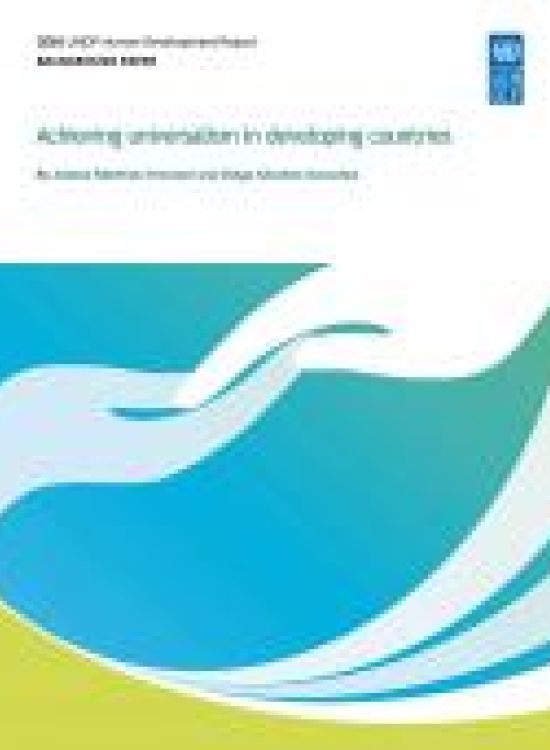Achieving universalism in developing countries

Download Report by Language
Document
franzonisanchezlayout.pdf
(1.27 MB)
Citation
Juliana Martínez Franzoni , Diego Sánchez-Ancochea. 2016. Achieving universalism in developing countries. New York.
Achieving universalism in developing countries
Posted on: January 01, 2016
Expanding people’s capabilities requires health care, education and a sufficient income throughout their lives. But how can policies be designed to ensure social rights and truly enhance capabilities? What should be the role of states and what of markets? Should services and transfers be for everyone or focus exclusively on the poor? This paper provides answers to these questions. We argue that to be effective and successful, social policies should be universal, providing the whole population with similar, generous transfers and services. In this paper, we distinguish between the desired policy outputs (coverage, generosity and equity of benefits) and the specific ways to secure them. We organize our argument in five sections. Section 2 fleshes out our framework, which argues for a clear distinction between policy outputs and instruments. Section 3 further develops our definition of universalism, highlighting potential trade-offs between the various dimensions it involves. Section 4 defines the concept of policy architecture and its influence on long-term trajectories. Recognizing that universal outputs will not be secured overnight, Section 5 explores the impact of different trajectories on universalism in the long run, distinguishing between a bottom-up strategy that starts from the poor or other alternatives that involve the non-poor from the onset. Section 6 reflects on the opportunities and constraints that the participation of the private sector creates for universal benefits, calling for its effective regulation. The paper finishes with some analytical conclusions and policy recommendations, which consider the role of politics and institutions and suggest changes at the global level.